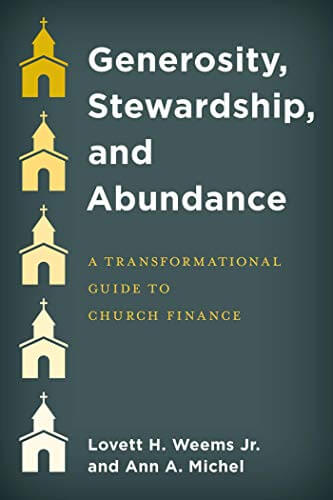My mother became a Christian when I was four. From that day forward, we were in church every Sunday … almost. Stewardship Sunday was the one day Mom encouraged us to skip church. Now that we are both pastors, we hope our people don’t feel the same way we did. But we know they do.
Seasoned supporters were personally approached to offer a matching gift of $250 for a first-time giver. Of dozens who were asked, not a single person declined. In fact, several matching donors gave more than requested. Others approached us to ask if they could join the matching group.
Stewardship has become a dirty word. November brings with it the lurking threat of sermons on giving. At best, people treat it like a trip to the dentist: they sigh and try to imagine they are somewhere else. At worst, they go missing. Why does stewardship feel like a root canal instead of an invitation to deeper faith and worship? And how might we change that?
Last summer, I was appointed to Bee Creek United Methodist Church, a young congregation in the hill country outside of Austin, Texas. What began eight years ago in a living room is now a church of 400, almost half of whom joined through profession of faith. This means that half of the congregation either has no idea what stewardship is, or a vague feeling of unease related to televangelists they have seen weeping mascara and stealing from grandma. The other half thinks they know what stewardship means, but would rather be at the dentist.
So last year we shifted the focus from budget and money to people and discipleship. We asked ourselves how we could help the congregation grow closer to God through practicing generosity. And could stewardship be fun instead of tedious? The solution occurred one day as I listened to NPR. They announced a matching gift for all first-time contributors. The phones lit up.
Our church adopted this “secular” idea. We liked how it promised to draw the congregation together for a common purpose: growth in generosity where everyone took a step together. New Christians were invited to make a giving commitment for the first time. Mature Christians would encourage them by providing a match above their normal pledge.
Seasoned supporters were personally approached to offer a matching gift of $250 for a first-time giver. Of dozens who were asked, not a single person declined. In fact, several matching donors gave more than requested. Others approached us to ask if they could join the matching group.
The response far exceeded our expectations. The previous year, we had 75 individuals and families who returned a commitment card. That number increased to 91 with the new plan. In one year, we saw 18 first-time commitments. In a year when our membership grew by two percent, the number of stewards increased by 23 percent!
Among the new supporters was Ben, who joined by profession of faith in the fall. The match “encouraged me to try to give more,” he said. “I had a set amount in my head I thought I could afford, but when I heard about [the match], I thought I could do a little more.” Jennifer and her husband have two preschool children and a tight budget. They “liked the idea that our first $250 would be matched. So when asked, we decided to put our contributions in writing with a commitment. We now put our cash in an envelope to track our contributions (we never did that before).”
Mature givers also felt involved and challenged. Folks who might be tempted to skip “Stewardship” Sunday were invited to become a part of encouraging the next generation of believers. Deborah and her family provided four matches. “Doing a pledge for the first time can be scary,” she said. “I decided to encourage new pledgers with a match to celebrate their commitment. There is a lot of blessing in giving.” Joe and his wife, who are retired, agreed to match a family. He and his wife realized “the Bible is full of examples where small beginnings lead to magnificent results.”
Would this idea work in your community? There is a danger that it could seem gimmicky and therefore be off-putting. Talk with your leadership about the idea well beforehand, and choose a matching amount that won’t intimidate first-time givers, but still provides an incentive.
Also seek to have the pastor personally invite mature givers into the process. Share with them how people reach their giving potential slowly, and the first step is the hardest. Help them see how they can help, and then ask for their support.
Remember, your mature givers are not always your largest donors. In our church, matches came from families at a variety of income levels, from construction workers and retired teachers to business executives. One told me the reason she gave is “because you asked me. If I had just heard it in church, I probably would have not done anything.” After agreeing to match one person, she ended up sending a check for four!
Stewardship should be an invitation to worship, joy, and thanksgiving. And why shouldn’t it be fun? Last year at our church, it was. May you also find new ways to invite people, at whatever stage they are in their faith, to grow in their generosity.







